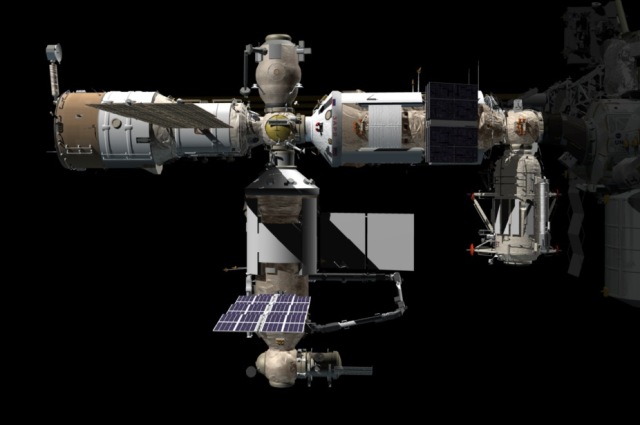The development of the preliminary design of the new Russian orbital station will begin this year
Kubinka (Moscow region). August 23. INTERFAX-The decision to include the ISS modules in the new Russian orbital station will be presented based on the results of a draft project, the development of which will begin this year, the head of Roscosmos Dmitry Rogozin told Interfax.
"This will be the result of a preliminary project that will begin this year," Rogozin said, answering a question about the inclusion of ISS modules in the new Russian orbital station.
On July 31, the Scientific and Technical Council of Roscosmos approved the creation of a new Russian orbital station.
The completion of the ISS operation is scheduled for 2028, by which time Roscosmos should launch a new Russian orbital station.
As the head of Roscosmos reported earlier, the scientific and technical council of the state corporation should decide how the appearance of the new Russian orbital station will be formed. "Either by increasing the Russian segment and the subsequent possible separation or a high-latitude station," Rogozin noted.
Russia, as reported, has decided to build its own orbital station, an exit from the ISS project is being considered, and this is due to the deterioration of the technical condition of the Russian segment of the station.
Rogozin reported that about 80% of the equipment of the Russian segment of the ISS has exhausted its resource and the cost of maintaining it after 2025 will be comparable to the cost of creating a new station.
On June 5, Rogozin and the new head of NASA, Bill Nelson, held telephone talks. According to Roscosmos, Nelson accepted the invitation of the head of the Russian state corporation to visit Russia and offered to extend the work of the ISS until 2030.
Rogozin, in turn, noted that the discussion of the future fate of the ISS is possible only after the lifting of US sanctions against Roscosmos enterprises.
Earlier, Rogozin reported that he and the head of NASA plan to discuss the future fate of the ISS. He noted that Russia may abandon plans to leave the ISS after 2025, if it is possible to agree with the United States on the commercial use of the Russian segment of the station.
It was reported that Russia may withdraw from the ISS project from 2025, transferring responsibility for its segment to its station partners. At the same time, it was noted that Russia can continue to support its segment with the financial participation of the United States.
An alternative would be the creation of a national orbital station, the first module of which is planned to be launched in 2025, and the deployment will be completed in 2035.
Several Russian space enterprises, including the Samara RCC Progress and the Central Research Institute of Mechanical Engineering (TsNIIMash), were included in the US sanctions lists. This means that now American companies will need to obtain special licenses for exporting, re-exporting or transferring products to those involved in the"black list".

